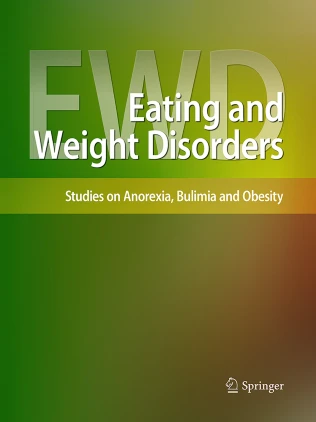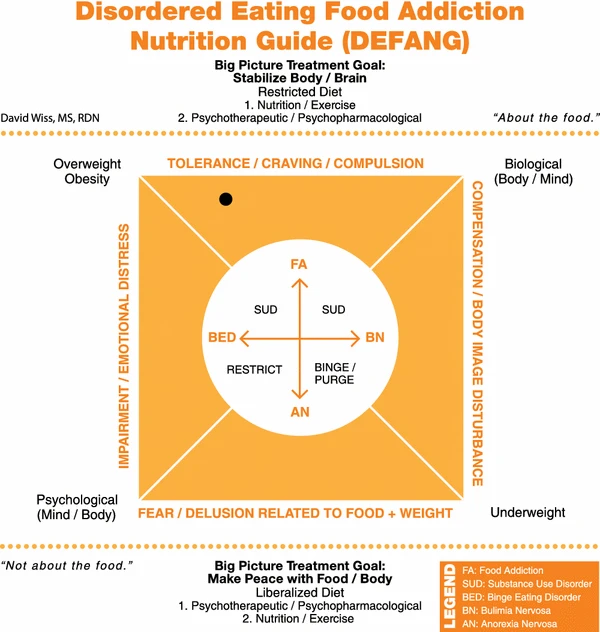Incorporating food addiction into disordered eating: The disordered eating and food addiction nutrition guide (DEFANG)
By David A. Wiss & Timothy D. Brewerton

The treatment for eating disorders should vary based on the individualized assessment and diagnosis. All patients entering eating disorder treatment should not receive the same type of food and generic nutrition education. Using the DEFANG, treatment teams can provide consistent ED-informed messages that are consistent with the patient diagnosis, and that can challenge self-destructive “black-and-white thinking”. Meanwhile, educational components can acknowledge the profound impact that contemporary food has on the human gut, brain, and endocrine system. Providers should explore these concepts with their patients and be willing to validate their difficulties navigating the food supply. Food addiction is a valid construct that should be incorporated into the spectrum of disordered eating, particularly for those patients with bulimia nervosa, binge eating disorder, and co-occurring addictive disorders (food addiction or substance use disorder). Further research on brain structure and function will help better model the complex interaction between eating disorders, substance use disorders, and addictions. Currently, there is no consensus on how to most effectively treat food addiction; therefore, efforts to identify more specific nutrition intervention strategies are clearly needed.
Subscribe for weekly insights and research exploring the link between nutrition & mental health.
Abstract
Although not formally recognized by the DSM-5, food addiction has been well described in the scientific literature. Food addiction has emerged as a clinical entity that is recognized within the spectrum of disordered eating, particularly in patients with bulimia nervosa, binge-eating disorder and/or co-occurring addictive disorders and obesity.
Integrating the concept of food addiction into the scope of disordered eating has been challenging for eating disorder treatment professionals, since there is no well-accepted treatment model. The confusion surrounding the implications of food addiction, as well as the impact of the contemporary Westernized diet, may contribute to poor treatment outcomes.
The purpose of this review is twofold. The first is to briefly explore the relationships between eating disorders and addictions, and the second is to propose a new model of conceptualizing and treating eating disorders that incorporates recent data on food addiction.
Since treatment for EDs should vary based on individual assessment and diagnosis, the Disordered Eating Food Addiction Nutrition Guide (DEFANG) is presented as a tool for framing treatment goals and helping patients achieve sustainable recovery.
